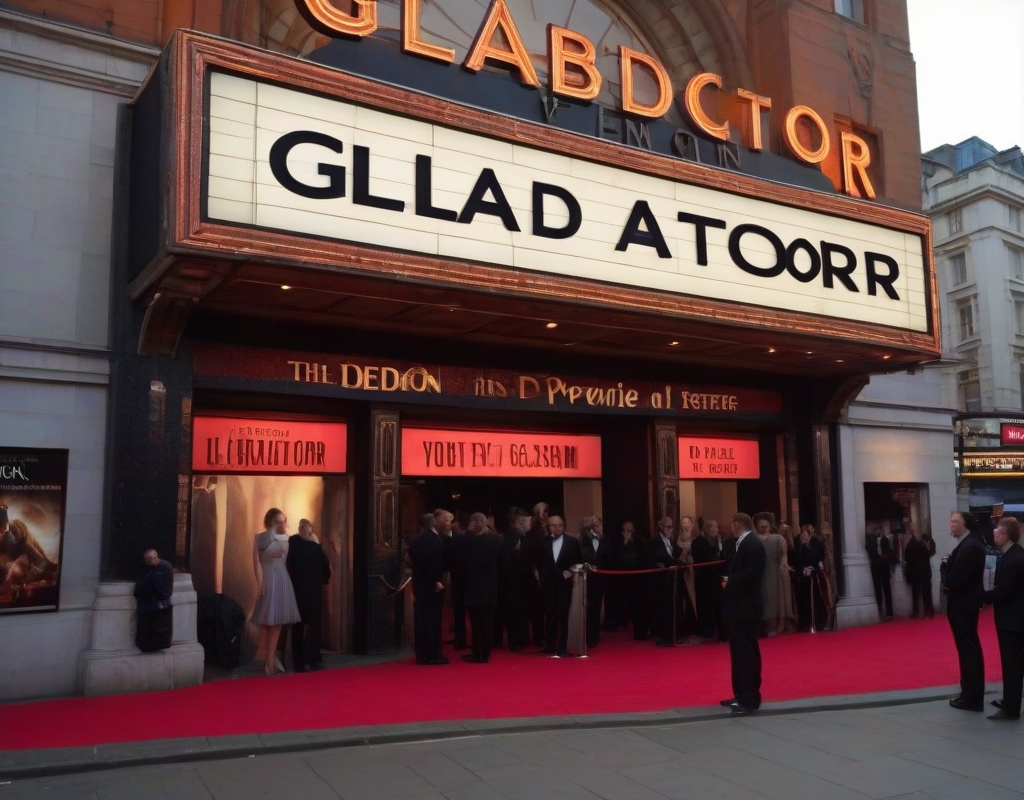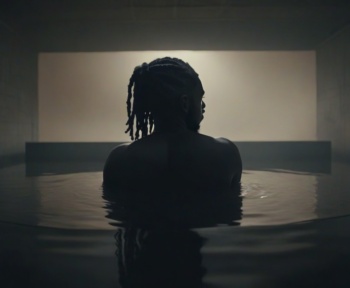In the heart of London, the Leicester Square Odeon was aglow with an air of grandeur and cinematic excellence for the premiere of “Gladiator 2.” This star-studded evening not only drew in Hollywood’s elite but also British royalty, blending cinematic prestige with regal elegance. The event captivated both ardent fans and observers alike for its representation of both Hollywood charm and royal sophistication.
On the red carpet, Denzel Washington exuded time-honored charm, cladding himself in a classic yet striking black suit. Known for his magnetic screen presence, Washington’s attire a testament to his seasoned style and charisma, affirming his status as a film industry stalwart.
Joining the lineup was Pedro Pascal, who with a shirt casually open to mid-chest brought a playful contrast to the traditional red carpet attire. Known for his captivating roles in “The Mandalorian” and “Game of Thrones,” Pascal’s charm was palpable. Accompanied by his sister, Lux Pascal, his presence added an element of familial warmth and casual sophistication to the premiere.
Rising star Joseph Quinn, known for his role in “Stranger Things,” donned a sleek black leather jacket ensemble. Amidst buzz surrounding his recent rumored relationship with musician Doja Cat—who also graced the event—their combined presence was much anticipated and added a dual flair of showbiz and music industry charm to the premiere.
Grammy Award-winning artist Doja Cat herself was a spectacle, known for her dynamic performances and avant-garde fashion sense. Her presence at the event highlighted the evening’s celebration of both music and cinema, captivating attendees with her signature bold style.
Other notable figures such as Connie Nielsen, Andrew Scott, and Jodie Turner-Smith among others, graced the red carpet, each bringing their unique artistic energies and contributing to the evening’s high-profile allure.
The occasion was further dignified by the presence of King Charles III, whose attendance lent a regal distinction to the festivities; his presence marked a significant blend of cultural and monarchical influence with the glamour of Hollywood.
“Gladiator 2” promises an epic continuation of the story of Lucius, son of Maximus. Paul Mescal assumes the role of Lucius, breathing fresh vitality into the storyline steeped in the treacherous politics and violent spectacle of ancient Rome. Directed by Ridley Scott with a script by David Scarpa, the film seeks to connect emotionally through a narrative rich with struggle and redemption, much like its predecessor.
The film’s momentum is anticipated to be significant, with early reviews praising its robust storytelling and powerful visual portrayal of ancient grandeur and the raw intensity of the Colosseum. Noted film critic Peter Travers has already hinted at a blend of stellar performances and compelling narrative as harbingers of the film’s success.
Looking back, the original “Gladiator” redefined the scope of historical epics with its profound narrative and sweeping cinematic technique. Garnering multiple Academy Awards, including Best Picture, its impact pervaded the film industry, inspiring a resurgence of interest in tales of antiquity. With “Gladiator 2,” the saga aims to delve into the themes of power, legacy, and identity, resonating across time.
Indeed, the London premiere of “Gladiator 2” was a celebration of film as a transcendent art form—an event marked by splendor and a showcase of international cinema and cultural synthesis. As the film prepares to captivate audiences globally, it stands as a monument not only to the legacy of its first installment but as a bearer of potential cinematic milestones in storytelling and visual prowess.




